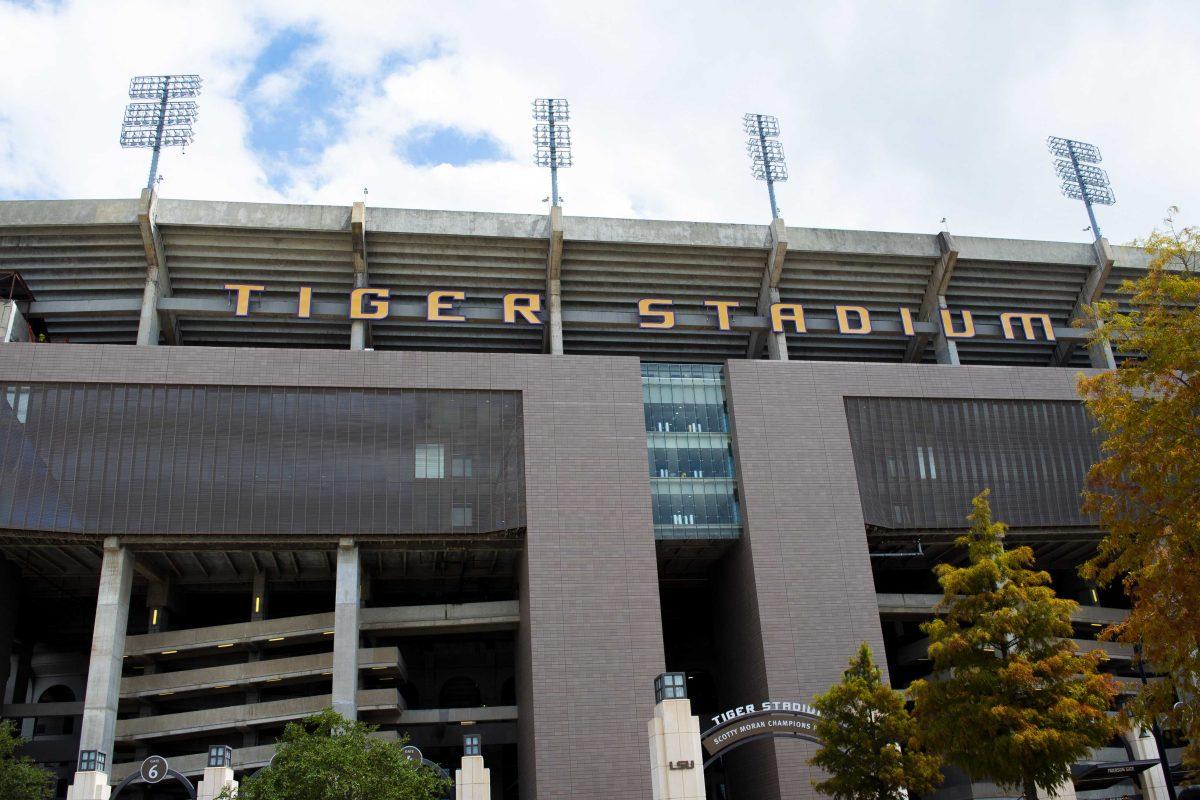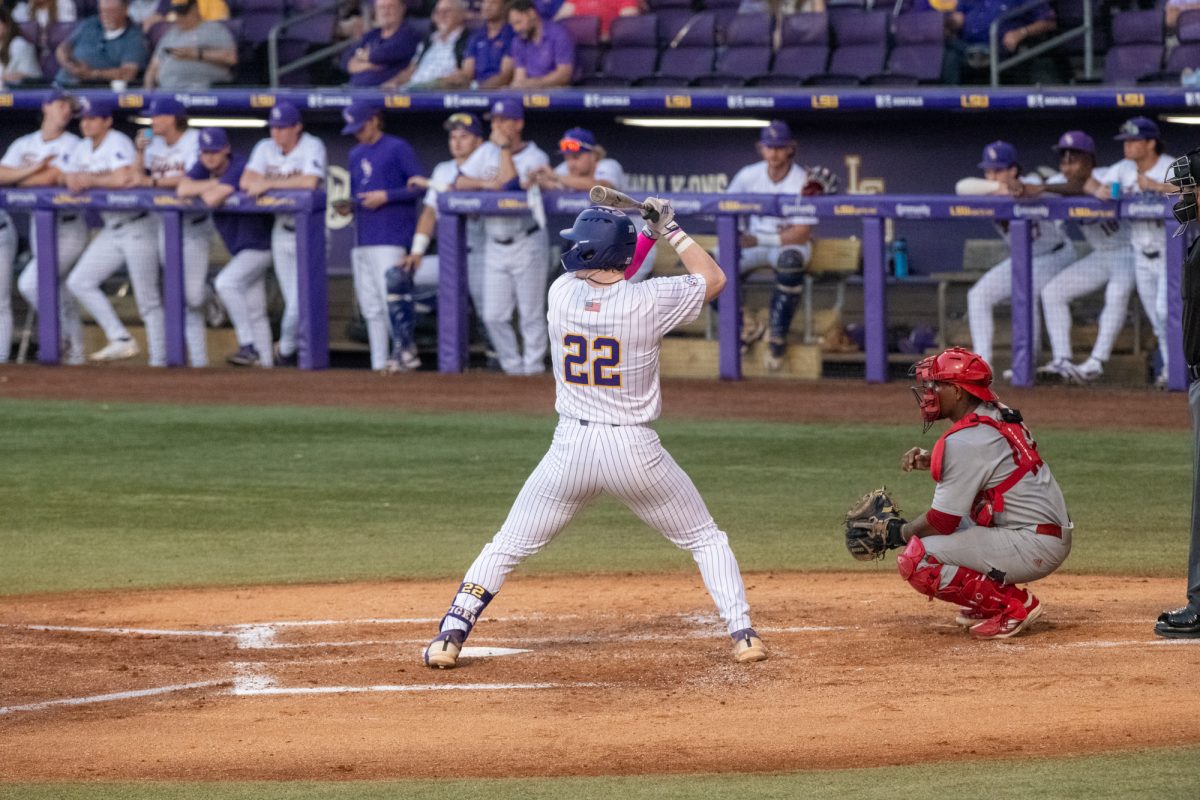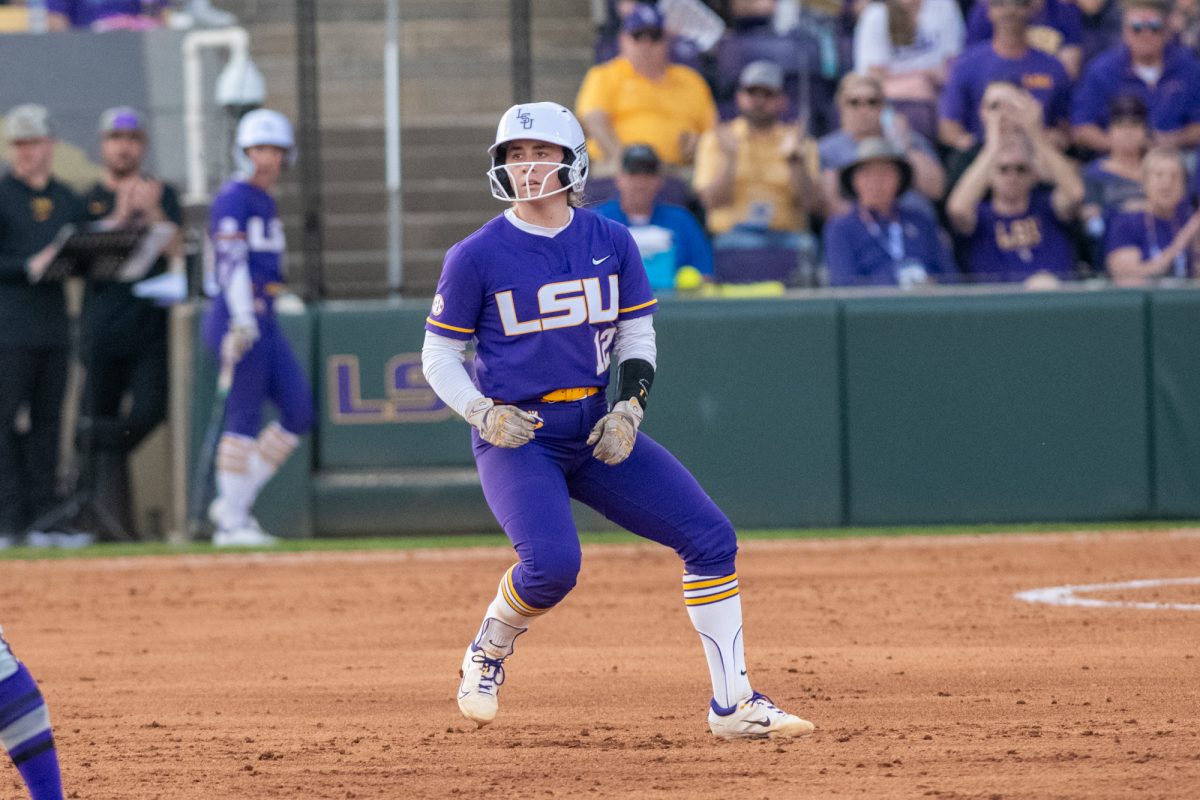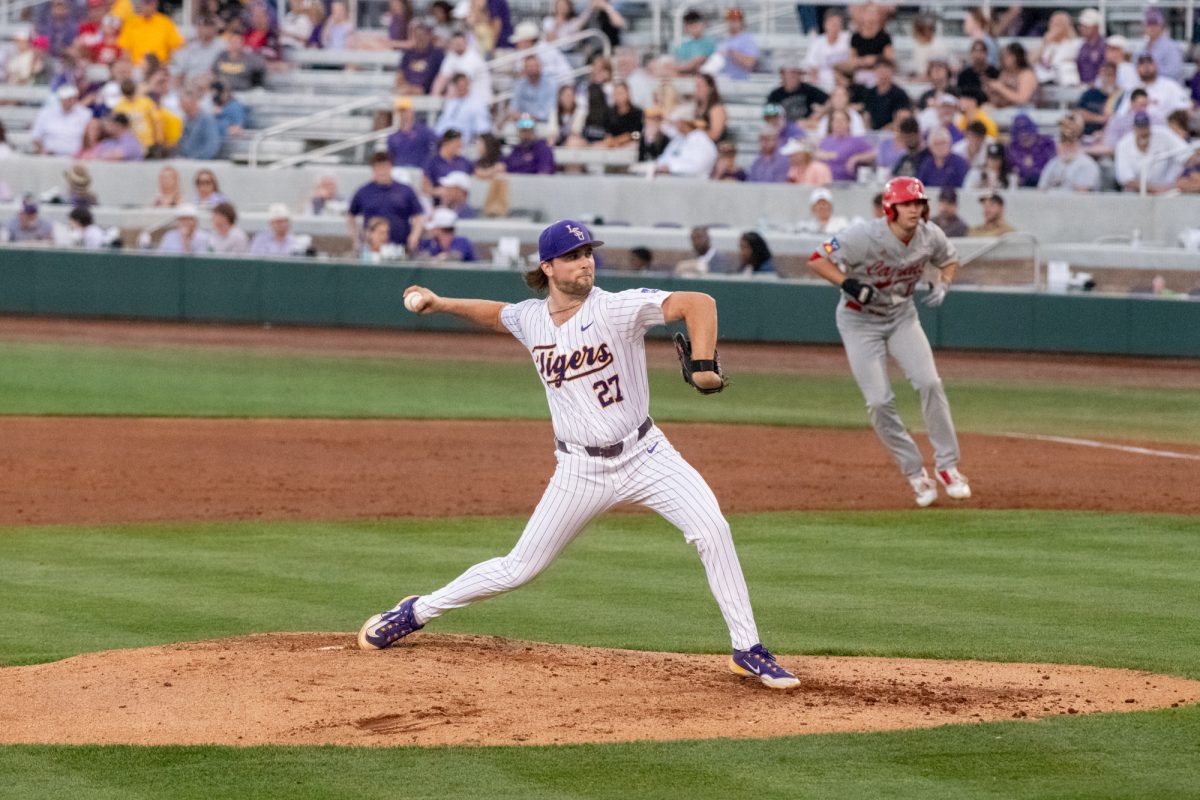COVID-19 has killed nearly 5,000 Louisianians.
How many of those were LSU fans? How many loved Saturday nights in Death Valley? How many have seen their last touchdown, felt their last Tiger Stadium rumble and heard those first four notes for the last time? How many have been lost far too soon to a virus that has killed far too many?
Sports, in the best of times, bring us together.
We grow closer as we share our love of the game in the stands, at the tailgates and around the televisions. Now, the importance of distancing ourselves from our fellow fans is a burden we must face to stop the spread of COVID-19.
In a perfect world, all 102,321 fans would be able to come together on Saturday nights and cheer on the Tigers. Of course, we desperately want sports to begin again and Death Valley to return to its full strength. But with at least 185,000 Americans dead from COVID-19, we must follow all safety protocols — not only to save football, but to save lives.
University students returned to campus just three weeks ago, and amount of cases in the community has already skyrocketed to 366 as of Sept. 2. Sure, the vast majority of college-aged individuals can and will avoid the worst effects of the coronavirus. We may be fine, but our professors, staff members, families and communities may not be. The less careful we are, the more cases will rise; and the more cases there are, the more lives we will lose.
In the sports world, it’s easy to think we are asking the biggest questions. Will we play football? Should we play football? Will fans attend? What about tailgating?
But amid all the bickering, the partisan scuffles, the disagreements among the Power Five conferences and the NCAA-sized leadership void, we want to make a few things clear.
First, The Reveille’s reporting will focus on the physical and mental health and safety of the LSU and Baton Rouge communities. That is our top priority.
Second, we do not envy the University’s decision makers, but we will hold them accountable should their actions endanger the health and safety of our campus and city.
We believe this virus can be controlled. With adequate testing, rigorous cardiac screening and thorough safety protocols, we can ensure our athletes, coaches and staff enjoy a safe return to the field. With sports, we can regain some sense of normalcy in a world that yearns for a return to routine. However, an overly hasty return to sports won’t help us win the game — it’ll only result in penalty.
If college sports return prematurely, consequences could be dire for athletes and fans alike. The long-term effects of the virus remain unknown. When they canceled their seasons last month, the Big 10 and Pac-12 cited concerns of a link between COVID-19 and myocarditis, a life-threatening heart condition. Even if stadium capacities are reduced to allow for social distancing, a football season will likely lead people to throw house parties and tailgates and crowd bars and restaurants as they did in seasons past, contributing to the spread of the virus.
If college sports do not return this fall, there will still be negative consequences. The Baton Rouge community, with its restaurants, bars, hotels and shops, will continue to suffer economically. Without revenue from football season, the University will take a big financial hit. The athletic department may have to lay off employees or cut Olympic sports. Athletes would lose their lifeblood.
There is no simple solution. Whatever happens, the virus will continue to create headaches and stress, hardships and challenges, sorrow and grief; but the beauty of sports always shines brightest in the triumph of the human spirit. Communities cheering vigorously from the stands and in front of their TVs and throwing their support behind teams facing adversity are magnificents things to witness. That symbiotic relationship is what made us fall in love with sports in the first place.
In a unique twist of irony, now athletes are waiting on the sidelines, rooting for their fans to come together to defeat a common adversary: COVID-19.
Wear a mask, practice social distancing and, most importantly, be considerate of the members of our community so we can all feel the satisfaction of overcoming one of humanity’s biggest obstacles to date. Someday, we’ll sing that first fight song, hear that first roar, feel that first cool Saturday night breeze and once again witness the cathedral of college football in all its glory.
Then, it’ll all be worth it.
Don’t let any more of our most vulnerable Tiger fans miss out.
This editorial was written in conjunction with sports editor Natasha Malone, deputy sports editor Reed Darcey and sports reporters Jared Brodtmann, Henry Huber, Michael Sanchez, Joe Kehrli and Ryan Nelsen.
Editorial Board: Universities must prioritize fans’, athletes’ safety over hasty return to college football
September 3, 2020
A view of Tiger Stadium stands tall on Tuesday, Aug. 25, 2020, on LSU’s campus.
More to Discover














